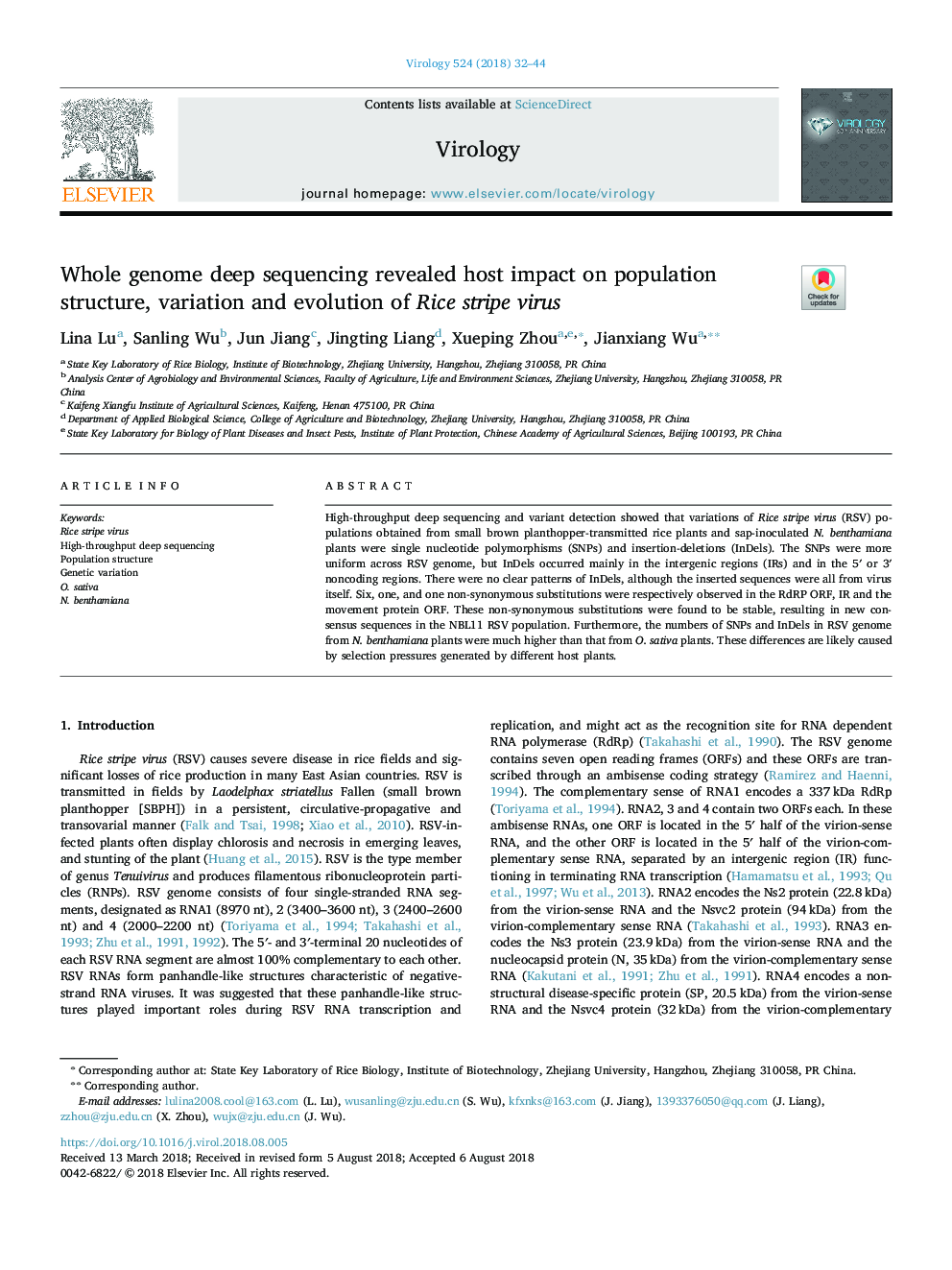| Article ID | Journal | Published Year | Pages | File Type |
|---|---|---|---|---|
| 8945004 | Virology | 2018 | 13 Pages |
Abstract
High-throughput deep sequencing and variant detection showed that variations of Rice stripe virus (RSV) populations obtained from small brown planthopper-transmitted rice plants and sap-inoculated N. benthamiana plants were single nucleotide polymorphisms (SNPs) and insertion-deletions (InDels). The SNPs were more uniform across RSV genome, but InDels occurred mainly in the intergenic regions (IRs) and in the 5â² or 3â² noncoding regions. There were no clear patterns of InDels, although the inserted sequences were all from virus itself. Six, one, and one non-synonymous substitutions were respectively observed in the RdRP ORF, IR and the movement protein ORF. These non-synonymous substitutions were found to be stable, resulting in new consensus sequences in the NBL11 RSV population. Furthermore, the numbers of SNPs and InDels in RSV genome from N. benthamiana plants were much higher than that from O. sativa plants. These differences are likely caused by selection pressures generated by different host plants.
Related Topics
Life Sciences
Immunology and Microbiology
Virology
Authors
Lina Lu, Sanling Wu, Jun Jiang, Jingting Liang, Xueping Zhou, Jianxiang Wu,
